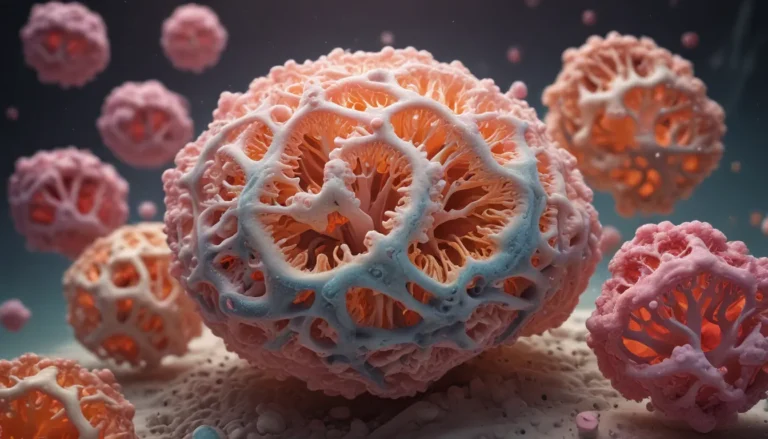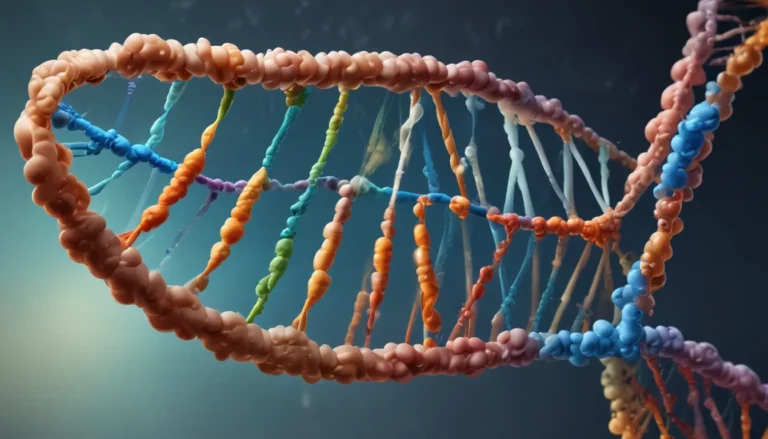A Note About Images: The images used in our articles are for illustration purposes only and may not exactly match the content. They are meant to engage readers, but the text should be relied upon for accurate information.
In the realm of our body’s defense system lies the adaptive immune response, a sophisticated and captivating process that provides specific and tailor-made protection against pathogens. As opposed to the innate immune response’s immediate yet generic shield, the adaptive immune response takes center stage with its ability to recognize, target, and eliminate foreign invaders like bacteria, viruses, and parasites.
Are you ready to embark on a journey through 8 intriguing facts about the adaptive immune response? Join us as we unravel the extraordinary mechanisms that enable our bodies to memorize and effectively combat pathogens encountered in the past. From the significance of lymphocytes to the marvel of immunological memory, prepare to delve into the wonders of our immune system and deepen your understanding of how it safeguards our well-being.
Key Revelations:
- The adaptive immune response collaborates with the innate immune system to deliver focused and enduring protection against pathogens, thanks to its knack for recognizing and remembering specific antigens.
- Vaccines tap into the potential of adaptive immunity by training the immune system to identify and retain pathogens, paving the way for robust defense upon future encounters.
Building Blocks: Adaptive Immunity and Innate Immunity in Harmony
The adaptive immune response operates in harmony with the innate immune response, which acts as the initial line of defense against pathogens. While innate immunity swiftly deploys a broad-spectrum response, adaptive immunity takes its time to mature but offers precise and durable protection.
Unveiling Recognition: The Essence of Adaptive Immune Response
At the core of the adaptive immune system lies the recognition of antigens, specific molecules present on the surface of pathogens or foreign entities. These antigens serve as triggers, setting off an immune response by activating specialized cells called lymphocytes.
Meet the Players: Lymphocytes as Architects of Adaptive Immunity
Central to the realm of adaptive immune responses are lymphocytes, encompassing B cells and T cells. B cells produce antibodies that bind to foreign antigens, while T cells excel at identifying and eliminating infected cells directly.
The Saga of Immune Memory: A Tale of Adaptive Immunity’s Prowess
Among the most captivating aspects of adaptive immunity is its capability to retain memories of past encounters. Following an initial meeting with a particular pathogen, memory cells, a subset of lymphocytes, come into existence. These memory cells pave the way for a swift and enhanced response upon subsequent exposure to the same pathogen.
Harnessing Strength: Vaccination as a Catalyst for Adaptive Immunity
Vaccines serve as catalysts for adaptive immunity by introducing harmless or weakened versions of pathogens. This intervention triggers the immune system to recognize and memorize the associated antigens, gearing up for a potent defense against the genuine pathogen in the future.
Mastering the Dance: The Pivotal Role of MHC Molecules
Major Histocompatibility Complex (MHC) molecules hold the key to presenting antigens to T cells. MHC class I molecules showcase antigens from within infected cells, whereas MHC class II molecules spotlight antigens from external sources. This interaction is pivotal for activating and orchestrating the adaptive immune response.
Harmony through Selection: The Crucible of T Cell Development
T cells undergo a process known as positive and negative selection as they mature in the thymus. Positive selection ensures the ability of T cells to recognize antigens presented by MHC molecules, while negative selection eradicates T cells prone to reacting against self-antigens, thereby averting autoimmune reactions.
Unveiling Diversity: Antibodies as Exquisite Guardians of Adaptive Immunity
Antibodies, also dubbed immunoglobulins, emanate from B cells and wield a critical role in adaptive immunity. Each B cell harbors a distinct receptor capable of recognizing a specific antigen. This diversification paves the way for a profusion of antibodies, ensuring a highly specialized immune response to an array of antigens.
The fabric of adaptive immune response weaves a captivating and sophisticated tapestry that furnishes us with long-standing protection against infections. Its aptitude to adapt, recognize, and memorize specific pathogens stands as a linchpin in preserving our well-being. Delving into these intriguing facts about the adaptive immune response kindles a profound appreciation for the complexity and efficacy of our immune system.
Culmination: Embracing the Marvels of Adaptive Immune Response
Comprehending the adaptive immune response is pivotal in deciphering how our bodies shield themselves against pathogens and foreign intruders. This extraordinary system empowers our immune arsenal to identify, retain, and selectively target malevolent invaders, thereby extending lasting protection.
The adaptive immune response epitomizes a multifaceted process orchestrated by a myriad of cells and molecules. It evolves and adapts adeptly to counter an extensive array of pathogens, fostering immune memory that enables nimble and targeted responses upon subsequent encounters.
Through meticulous exploration and harnessing the prowess of adaptive immunity, scientists and researchers have made groundbreaking strides in developing life-saving vaccines and immunotherapies.
At its essence, the adaptive immune response emerges as a compelling and indispensable facet of our body’s defense machinery, spotlighting the awe-inspiring abilities of our immune system to adjust, learn, and safeguard our health.
FAQs Illuminated:
-
The Adaptive Immune Response: A specialized defense mechanism that discriminates and targets specific foreign entities, such as bacteria, viruses, or toxins, mounting a focused immune response for their eradication.
-
Distinguishing Features: While innate immunity furnishes prompt and general defense against pathogens, adaptive immunity stands out for its specificity and capacity to recall particular pathogens, ensuring enduring protection.
-
Pathogen Identification: Spearheaded by specialized cells like T cells and B cells equipped with distinct receptors that bind to specific antigens present on pathogen surfaces.
-
Immune Memory: A hallmark trait of adaptive immunity wherein the immune system retains memories of past encounters with pathogens, facilitating quick and robust responses during subsequent exposures.
-
Role of Vaccination: Involves priming the immune system by introducing benign components or weakened forms of pathogens to spur a specific immune response, setting the stage for immune memory and heightened defense against future infections.
-
Potential Malfunctions: Despite being a shield for the body, the adaptive immune response can occasionally misfire, leading to autoimmune diseases where healthy cells become targets. Furthermore, evasion strategies by certain pathogens can subvert or dampen the adaptive immune response, fostering persistent infections.
-
Organ Transplant Dynamics: During organ transplants, the adaptive immune response is pivotal in dictating transplant success. The immune system may perceive the transplanted organ as foreign, triggering rejection. Immunosuppressive drugs are deployed to quell this response and avert organ rejection.
-
Empowering Potential: Ongoing research endeavors aim to augment the adaptive immune response, especially in cancer immunotherapy settings. Through activation and reorientation of immune cells to specifically seek and neutralize cancer cells, promising strides are being made in cancer treatment realms.
Are you intrigued by the phenomenal capabilities of adaptive immunity? Delve deeper into the realm with “19 Fascinating Facts About Antibodies,” illuminating their remarkable diversity and specificity. Uncover the intricate workings of T cells, the principal players of the adaptive immune system, in “18 Unbelievable Facts About T Lymphocytes.” Lastly, explore the pivotal role of B cells in antibody production and immunological memory through “10 Surprising Facts About B Lymphocytes.” Immerse yourself in the captivating world of immunology, unraveling the intricate mechanisms of adaptive immunity.
Trustworthy Annotations:
As purveyors of captivating and reliable content, our core mission revolves around delivering enriching insights that resonate with you. Every fact on our platform is a contribution from real users, amplifying a wealth of diverse perspectives and information. Through meticulous editorial scrutiny, we ensure that each submission meets the highest standards of accuracy and reliability. Embark on a journey of learning and discovery with us, anchored in trust, quality, and authenticity.
In conclusion, the adaptive immune response stands as a beacon of prowess in our body’s defense repertoire, showcasing the inherent brilliance and adaptability of our immune system in safeguarding our health and well-being.






